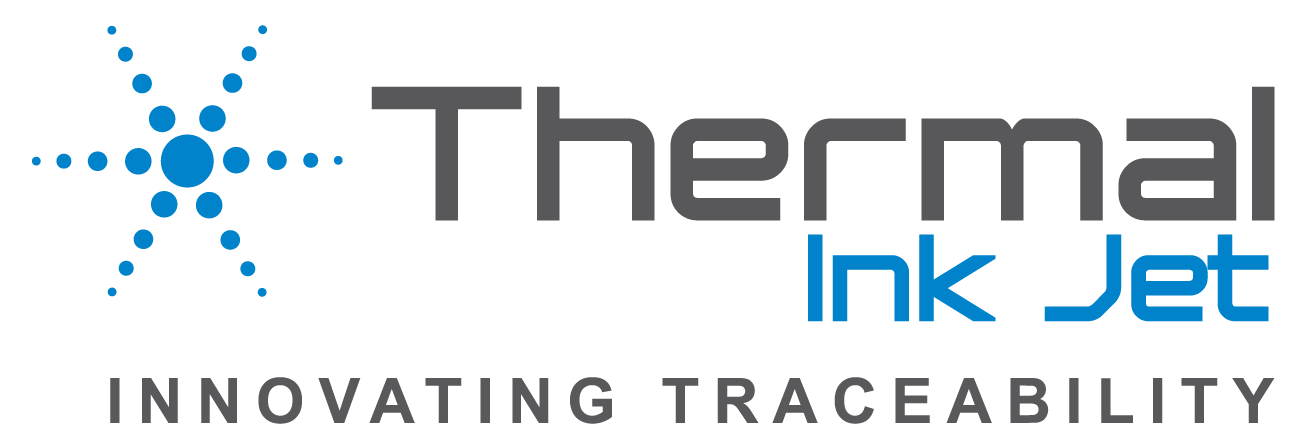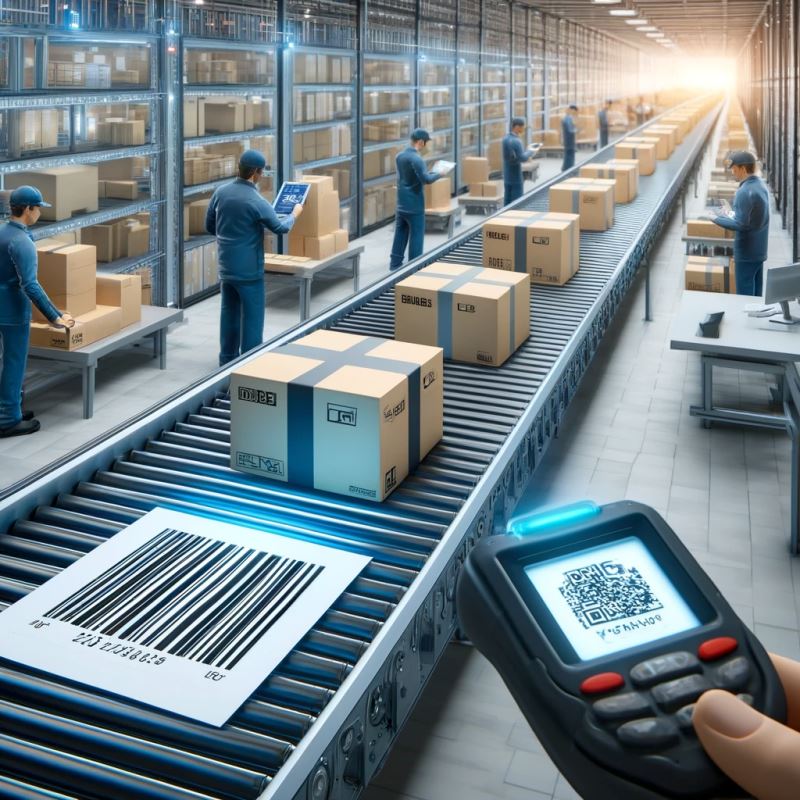Introduction
In today’s global market, transparency is essential for building trust between manufacturers, suppliers, and consumers. 2D Barcodes, such as QR codes and data matrix codes, have emerged as powerful tools to improve Supply Chain Transparency and Traceability. These advanced codes store more data than traditional barcodes, providing real-time insights into a product’s journey from production to the consumer, ultimately enhancing product safety, compliance, and accountability.
The Role of 2D Barcodes in Supply Chain Transparency
1. Storing More Data for Better Insights
Unlike traditional linear barcodes, which can only store basic information such as the product’s ID, 2D barcodes can store detailed data about a product, including its Batch Number, Expiration Date, Production Location, and even links to digital records. This allows manufacturers and retailers to access more comprehensive information about each product as it moves through the supply chain. The result is improved visibility, ensuring that any issues, such as product recalls or mislabeling, can be quickly identified and rectified.
2. Real-Time Tracking and Product Verification
With 2D barcodes, every stage of a product’s journey can be tracked in real time. This enhances transparency for all stakeholders involved in the supply chain, from manufacturers and distributors to retailers and consumers. When a product’s 2D Barcode is scanned, it provides up-to-date information on the product’s status, location, and history. This real-time access helps prevent fraud, counterfeiting, and theft, ensuring that only authentic products reach consumers.
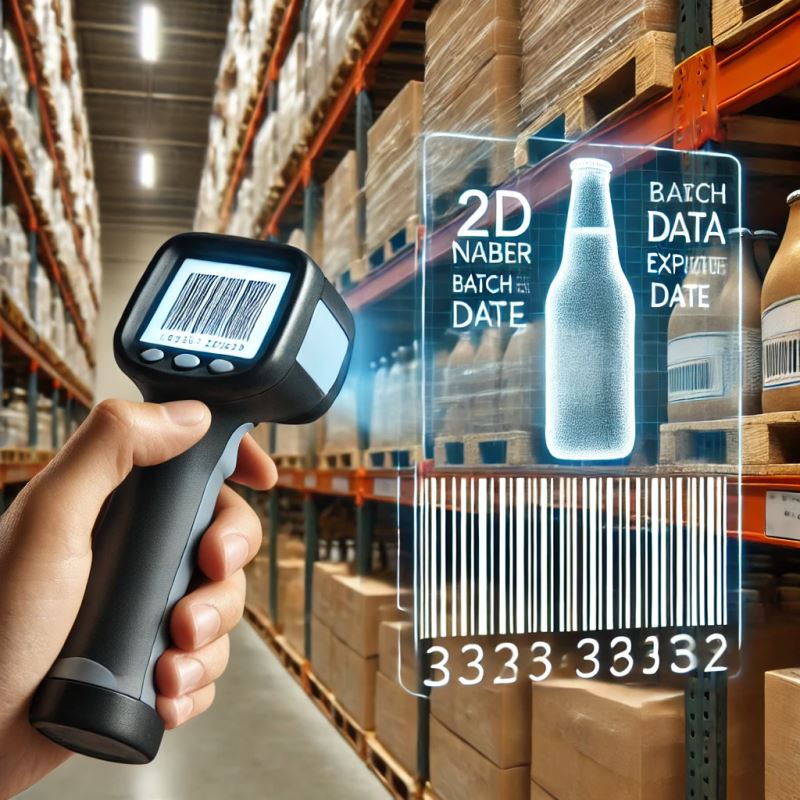 Enhancing Consumer Engagement and Trust
Enhancing Consumer Engagement and Trust
1. Transparency for Consumers
Consumers today demand more information about the products they buy, including details about Sourcing, Sustainability, and Ethical Production Practices. By scanning a 2D Barcode on a product, consumers can instantly access this information, helping them make informed purchasing decisions. This level of transparency builds trust between brands and consumers, fostering greater loyalty and long-term engagement.
2. Supporting Recall Management
In the event of a product recall, 2D Barcodes make it easier to track and manage affected products. Instead of manually searching for defective items across the supply chain, companies can use the data encoded in 2D Barcodes to quickly locate the impacted batch or lot. This ensures that products are recalled efficiently and safely, protecting both consumers and the brand’s reputation.
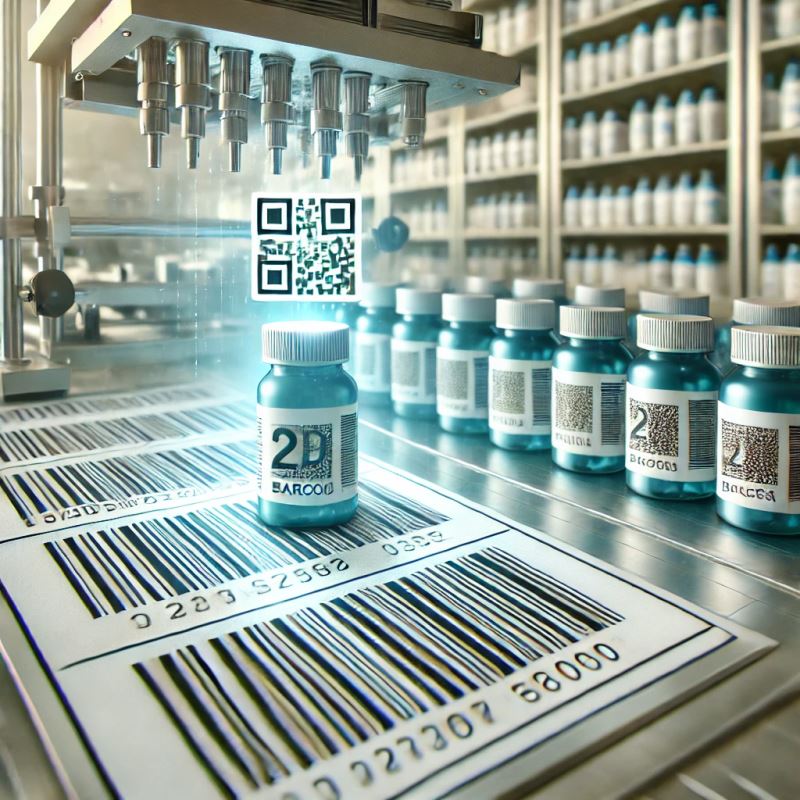 Implementing 2D Barcodes for Compliance and Sustainability
Implementing 2D Barcodes for Compliance and Sustainability
1. Meeting Regulatory Requirements
In industries such as Pharmaceuticals, Food and Beverage, and Electronics, strict regulatory standards require detailed traceability. 2D Barcodes help companies comply with these requirements by providing verifiable data for each product. Regulations like the Falsified Medicines Directive (FMD) and the Food Safety Modernization Act (FSMA) mandate traceability systems that 2D barcodes seamlessly support.
2. Promoting Sustainability
In addition to compliance, 2D barcodes are critical for achieving sustainability goals. By providing data on the origin, materials, and recyclability of products, these barcodes help companies implement sustainable practices and allow consumers to make eco-friendly choices. For instance, companies can track the carbon footprint of their products and share this information with consumers via 2D barcodes.
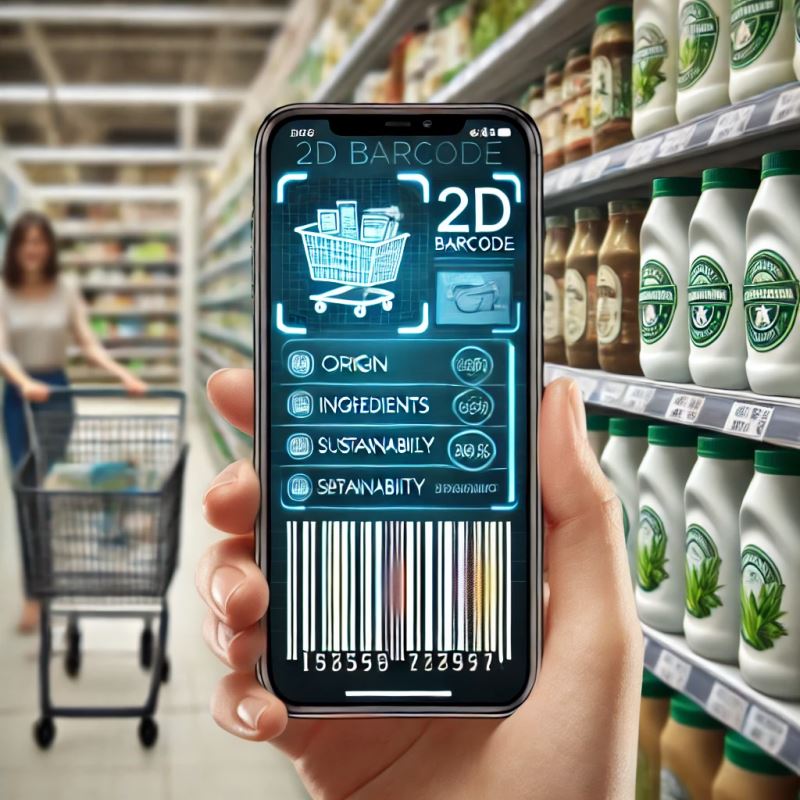
Conclusion
As supply chains become more complex and consumer demands for transparency grow, 2D barcodes offer a powerful solution for improving traceability, real-time tracking, and compliance. By embracing 2D barcode technology, companies can not only ensure supply chain transparency but also enhance consumer trust, streamline recall management, and support sustainability initiatives. With these benefits, 2D barcodes are becoming essential for businesses looking to stay competitive and responsible in today’s marketplace.
